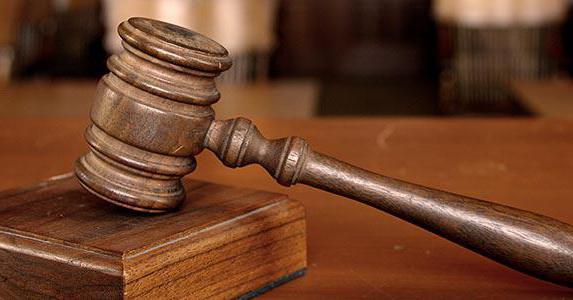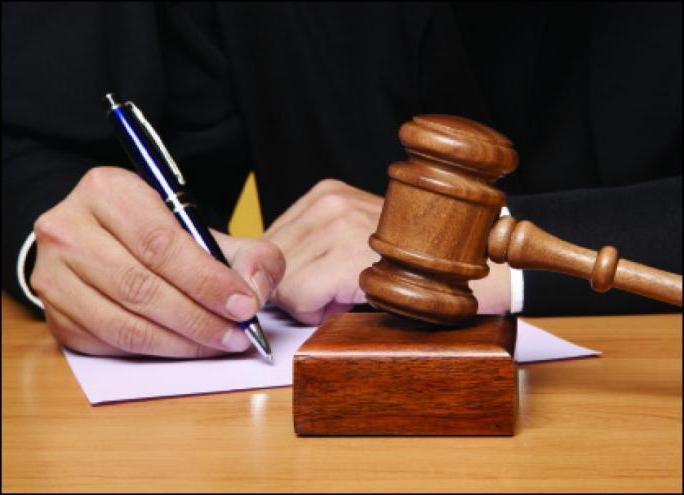According to the general rule, the documented last will of the testator is carried out by the receivers indicated in the will. But in some cases, after the opening of the inheritance, another person is engaged in this. The law provides for the possibility of assigning this right to the executor of the will - it may be from among the heirs by law or by will or generally from the side. This right of the testator is secured by Art. 1134 of the Civil Code of the Russian Federation.

General concept
There are cases when the testator, while still alive, being in a sober mind, understands that after his death, inheritance under the law will certainly cause disputes and disagreements between the receivers of his property. This can happen due to various life circumstances.
It was then that the idea came to leave a testamentary disposition that would solve the problem of sharing property between potential heirs after his death.
In rare cases, testators resort to the appointment of the executor of the will. The executor is a person who will bear the burden of fulfilling the last will of a citizen. 
Appointment Procedure
This issue is clearly regulated by civil law. In accordance with it, the requirements for the appointment of the executor of the will are defined:
- An executor can be a person who has no relation to the testator himself, that is, is not a relative or heir of the testator (for example, a close friend or colleague). In other words, the citizen appointed by the contractor should be completely free from any personal interest.
- The name of the executor of the will must be indicated in the text of the document itself. At the same time, a citizen may express his consent to the performance of his duties as follows: by putting a signature in a testament document or in a statement that is attached to this order. The designated contractor may also make such a statement to the notary after the death of the testator within a month.
If the executor of the will specified in the will, who is the executor, has in fact assumed his obligation to ensure the last will of the deceased after his death within a month, then he shall be considered to have given consent by virtue of law. This norm is enshrined in Part 1 of Art. 1134 of the Civil Code of the Russian Federation.
3. The release of the contractor appointed by the testator from the obligation to execute the will shall be carried out in a judicial proceeding subject to his refusal or upon application of the heirs. For exemption from execution, good reasons are necessary, on which the court will rely when making the decision. Obstacles to the execution by the clerk of the duties assigned to him, circumstances may arise as a result of his serious illness, recognition as incompetent or of limited legal capacity, recognition as missing, etc.
4. The testator, at his own request, has the right to appoint more than one executor, if he considers it appropriate, distributing among them the responsibilities for the implementation of certain testamentary orders.
Suppose, for execution of more complex orders, a person with a legal education may be appointed to quickly understand the essence and correctly execute the will of the deceased, and for the execution of the order, which does not require special knowledge, the testator will appoint just a person close to him, who will be more comfortable to fulfill those assigned to his obligations.
The powers of the executor in the framework of the execution of the testamentary disposition
In parallel with the opening of the inheritance, a notary shall be issued to the designated contractor by a notary confirming his right to exercise his functions.
All actions of the performer should be based solely on the will of the deceased and not go beyond the law.
The terms of reference of the executor of the will include:
- Ensuring the transfer to the heirs of the shares in the inheritance due in accordance with the last will of the deceased.
- Protection of the inheritance and implementation of actions to manage the estate. If these measures cannot be performed independently, the executor must turn to a notary for help.
- Receipt of property and cash payments due to the testator, not subject to transfer to other persons. In accordance with the law, these may not be received during one's lifetime: pension, wage arrears, scholarship, social benefits, alimony payments and other means.
- Implementation of activities related to the execution of a testamentary disposition on behalf of the testator in the courts of law, as well as in state bodies.
- Execution or demand for execution from heirs of testamentary testament or testament denial.
The powers of the person authorized by the testator are confirmed by a special certificate. This document is issued by a notary. The executor acts on his own behalf in the interests of the successors indicated by the testator, related to the execution of the testamentary order of the deceased. 
Concepts of testamentary denial
Testamentary denial may mean the obligation imposed on the heir to provide the receiver to the possession or use of certain property transferred to him by inheritance, or the obligation to perform certain works (provide services), or the obligation to pay periodic payments specified by the testator.
What is a testament?
Testamentary laying consists in laying on the heir (one or several) the obligations specified by the testator (for example, on care and supervision of animals, etc.).
Executor, not contrary to law
The executor of the will indicated by the testator in the will is the executor. It may be one of the heirs of the deceased. This is a kind of confidant, whom the other heirs instruct on their behalf to take all necessary measures and perform certain actions.
For example, if the heirs live at considerable distances from each other and do not have the opportunity to personally attend.
The executor of the will from among the heirs is appointed only after the death of the testator.
How to resolve disputes between heirs and the executor?
In modern society, often quite wealthy people act as testaments, the inheritance of which may include entire enterprises, organizations or companies, as well as securities and debt obligations.
The large volume of inheritance often causes a lot of controversy between the heirs of the deceased, requiring judicial resolution.
If the testator realizes this during his life, then the appointment of the executor becomes the only right decision.
And it’s better if it is an experienced, knowledgeable lawyer who can easily cope with the task entrusted to him.
However, if a dispute arises between the heirs and the executor himself, then only the court can resolve it. The executor of the will accused of unfair performance of the obligations assigned to him is subject to removal from execution in court proceedings (of course, if his guilt is proved). 
Execution of a will in relation to a minor
In certain cases, the appointment of a contractor is a necessary necessity.Suppose the heir has not reached the age of majority, and the testator left certain orders regarding him? In this case, the obligation to fulfill the testamentary disposition can be assigned to the executor for a longer period than that established by law for acceptance of the inheritance (for example, until the heir is executed 18 years).
Debt settlement
Each potential testator needs to understand what can constitute his hereditary mass. In addition to material wealth, the testator's heirs take on the burden of his loan obligations.
Regarding the debts left by the deceased, the situation is somewhat different.
The executor is not obligated to settle accounts with the testator's creditors. This responsibility is completely assigned by law to heirs who have entered into inheritance rights and have declared their rights. In accordance with the legislation on the debts of the testator, the heirs are liable in solidarity.
Individuals and legal entities that provided the testator with life-time lending services under the law have the right to declare their claims to the executor before accepting the inheritance.
With regard to heirs, claims shall be declared within the limitation period.